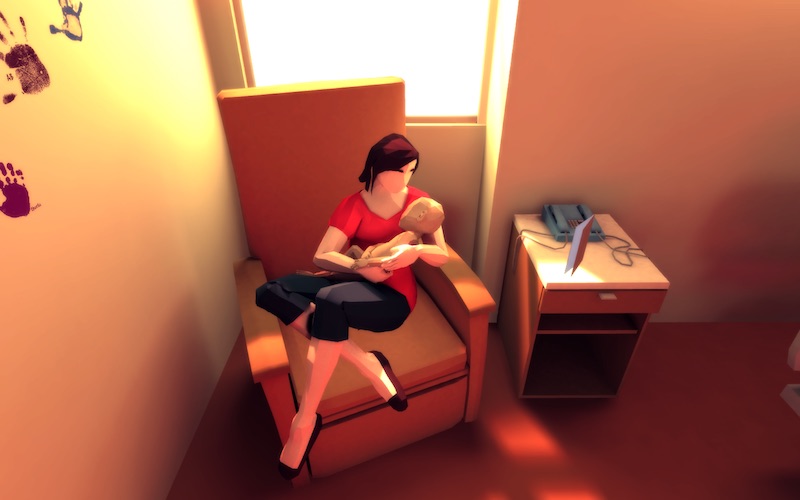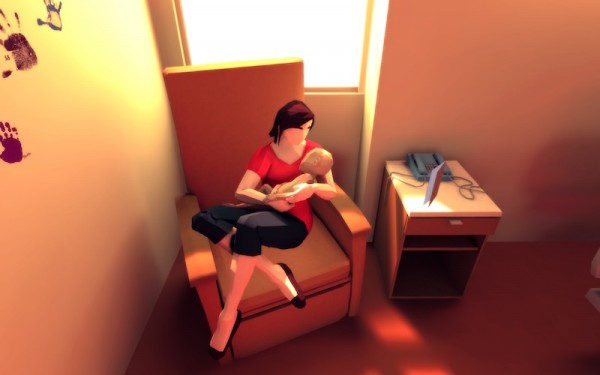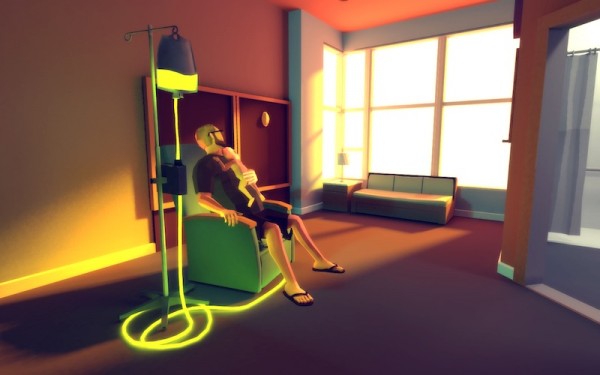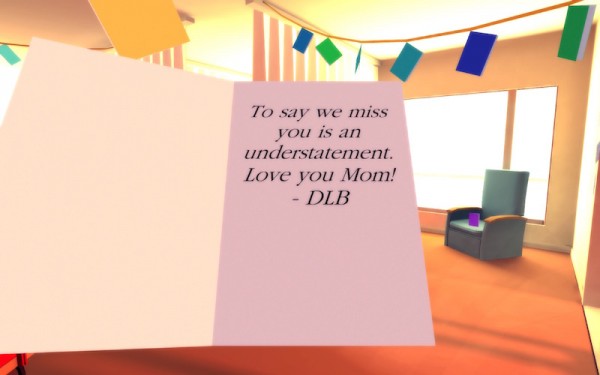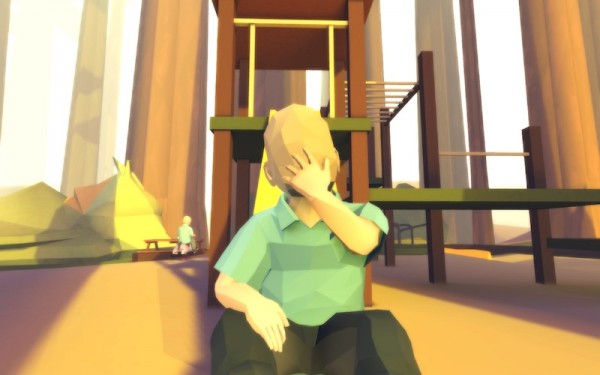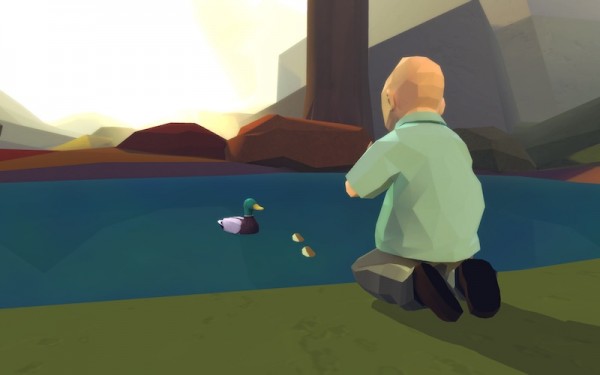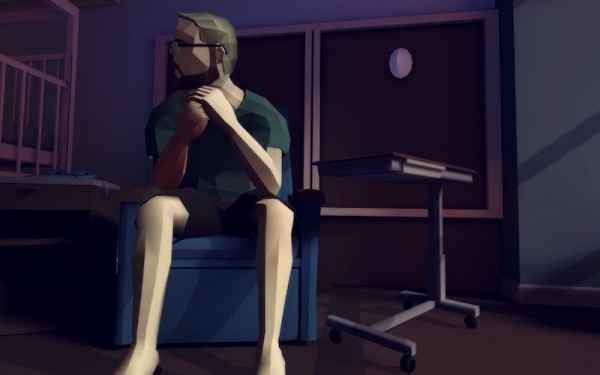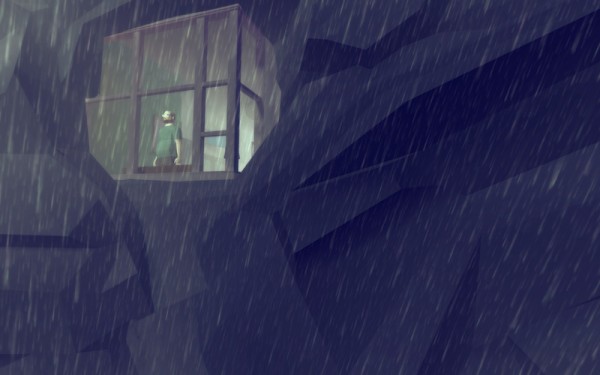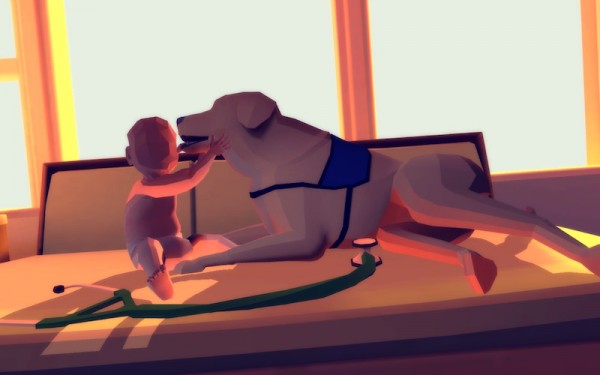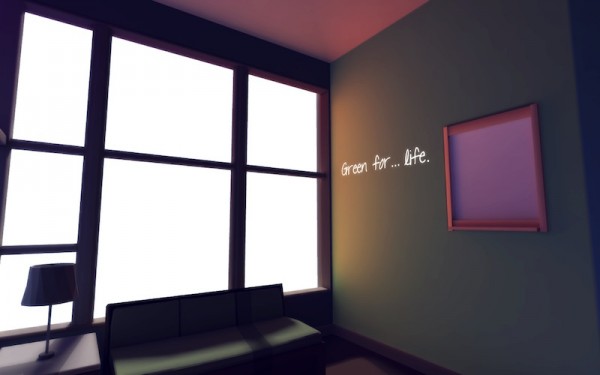What started as a casual suggestion with the editorial team turned into an actual review of “That Dragon, Cancer”. While I was intrigued by the game, I never would have thought I’ll have to sit down for a couple of hours and play through this emotionally charged game. Why? Well, because…it’s an emotional game.
Against my better judgement, I went on Steam, purchased the game, and fired it up. Boy, was I not ready for what’s to come.
“That Dragon, Cancer” was developed by Ryan Green and a small team at Numinous Games. His wife, Amy, also contributed to the game as a writer. In essence, this game revolves around Green and Amy’s struggle and experience with their son, Joel, who was diagnosed with an aggressive brain cancer at the age of one. After finishing the game in just under two hours, all I can say is…”That Dragon, Cancer” isn’t your typical game; it is much more than that.
While we’re on the subject, “That Dragon, Cancer” is a point and click game with a few elements of traditional video games thrown here and there. Now, typical video games will reward you in various ways like powerups and flashy graphics, but with “That Dragon, Cancer”, these elements are not present. Quite simply, it’s not much a game as it is a medium for Green to tell his story: a very personal one.
Graphically, the game exudes a very abstract-like art style. I wasn’t expecting mind-blowing graphics coming into this review, but the art style does grow on me, and it helps tell Green’s story very well. This, coupled with some great voice acting – from Green himself, his wife Amy and their sons – made “That Dragon, Cancer” that much more personal. Did I mention the game has some really good soundtrack as well?
After playing about midway through the game, I’m faced with a particularly interesting scene. I’m in a hospital room, and there are various messages from other cancer patients, survivors, and even those who have lost someone they loved. While reading through these messages, I’m somewhat reminded of the same messages of lost from “The Last of Us”, a post-apocalyptic game by Naughty Dog. Only in this case, these messages are from real individuals who have faced these circumstances in their lives.
As I moved deeper into the story, I begin to grow fond of Joel. I mean, who wouldn’t want to help a sick child as much as they can? Hearing Joel laugh – the game uses actual recordings of his laughter – is a really rewarding experience. Although…I have to be honest: I was a little reserved of Joel in the beginning, no thanks to numerous horror movies which prominently portray little kids as eerie figures and what not. That being said, after playing through the game and getting to know Joel more, I was able to “put a face” to him, and it really…changed my overall impression and perspective of the game. It made every scene with him that much more meaningful in many, many ways.
Out of all the scenes that I played through in “That Dragon, Cancer”, there’s one very memorable one that made me feel particularly helpless. Because of the point and click nature of this game, I’m not comfortable with not being “in control” of the game. I’m limited by the amount of things I can do, and all that I could do was just watch and let the scene play out, much to my frustration. The thing is, I have a feeling this is exactly what Green wanted to evoke in that scene: a feeling of helplessness and frustration.
That is not to say “That Dragon, Cancer” does not have any happy moments at all. There are a few scenes that genuinely made me smile, and being hopeful is one of the main themes of the game, such as Amy’s optimism that Joel will be able to pull through. In fact, without these more cheerful moments, I don’t think I’d be able to finish the game. The balance between more emotional and happy moments essentially made the game playable without being too depressing.
It is without a doubt that “That Dragon, Cancer” is a very heavy and emotionally charged game. It is much more than a family’s struggle with a terminally ill child; it evokes the realisation that I may have to face similar situations of helplessness and loss in the future, and it is not something that I – or anyone, for that matter – will want to go through if it can be helped.
But, in retrospect, I believe Green envisioned “That Dragon, Cancer” to be a wakeup call for many of us who take things for granted. With all the hustle and bustle of life, it’s easy to lose sight of what really matters in life.
Green’s work should make us cherish each day we have with our loved ones more, and as cliched as this sounds, it is my takeaway of the game.
Follow us on Instagram, Facebook, Twitter or Telegram for more updates and breaking news.


